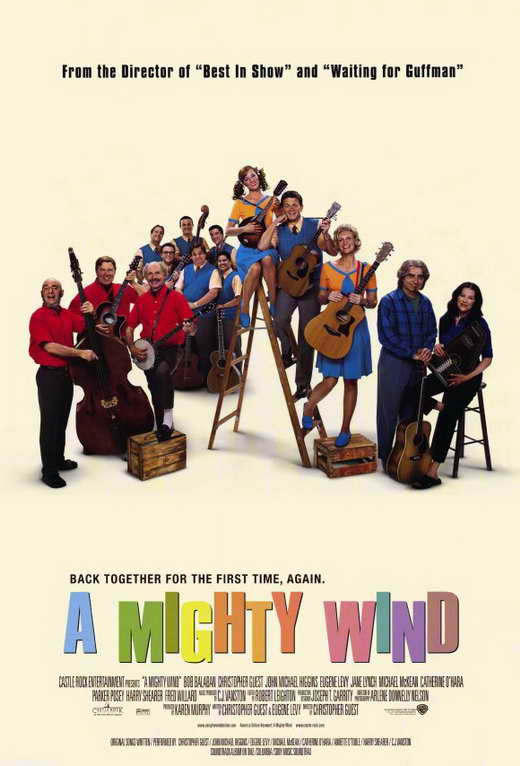
Posted on 07/23/2014 9:28:20 AM PDT by rktman
On Sunday, Lincoln Center Out of Doors hosted the third of five days of “New York City Honors Pete Seeger,” or Seegerfest, as the events are called. This was the festival’s main event. A concert featured artists singing songs Seeger was associated with, like “The Hammer Song,” “Turn, Turn, Turn,” and, of course, “Where Have All the Flowers Gone?” The artists included old-time folkies like Judy Collins, who opened the program, Fred Hellerman of The Weavers, the popular children’s singer Dan Zanes, banjo master Tony Trischka, Tom Chapin and the Chapin sisters, and Jay Ungar and Molly Mason. The artists were a who’s-who of the ’60s folk revival and their current descendants.
Pete Seeger certainly deserves to be remembered. He was the father of the folk revival, the man who almost singlehandedly brought the 5-string banjo to popularity, and who furthered the careers of many people, including a young Bob Dylan. He mastered old-time ballads from Appalachia and the Smoky Mountains, African-American songs from the South and from the days of slavery, sea shanties, and just about everything else folk musicians perform.
But Seeger’s blind spots were his persistent Stalinism, his decades-long love affair with the American Communist Party, and his tendency to endorse and support almost every far-left campaign that asked him to sign on.
(Excerpt) Read more at pjmedia.com ...
What a great voice!
For hog calling.


In 1948, Seeger was an active backer of Henry A Wallace’s Progressive Party bid for President.
A large contingent of Wallace’s supporters/volunteers were, in fact, active members of the American Communist Party or were fellow travellers.
He was the father of the folk revival, the man who almost singlehandedly brought the 5-string banjo to popularity, and who furthered the careers of many people, including a young Bob Dylan. “
Have to disagree with all of this.. Earl Scruggs made the banjo popular again. Seeger just profited by selling his crappy banjo instruction book, which for a time was the ONLY resource out there.
As for helping Bob Dylan, a little research into Johnny Cash’s efforts to get Dylan into the Columbia fold might clear things up there.
Seeger was an opportunist and a thief of the intellectual property of others and became quite the wealthy capitalist while spouting the communist hatred for capitalism.
Check out Mark Steyn’s old Song of the Week article on The Lion Sleeps Tonight to get some insight into the blood sucking tick that Seeger was.
The man was a Communist.
He was always quite open and honest about that.
In retrospect quite refreshing compared to all of those politicians who try and hide behind some form of window dressing.
Subjecting me to his politics at age six by repeatedly putting him on Sesame Street...now THAT was reprehensible.
Indeed.
Pete Seeger didn’t write “Turn, Turn, Turn.” King Solomon did.
I think Ungar is the guy who wrote "Ashokan Farewell" (the signature theme of Ken Burns' Civil War miniseries).
Commies Come Out to Sing
All those hippies gathered together in one place??
Where’s Al Qaeda when you need ‘em?
Thought this was about Pete Seeger
Son, correct?

To quote Cracker....
What the world needs now, is another folk singer
Like I need a hole in my head.
For many decades the American folk music scene was dominated by leftists/communists. Many musicians had to toe the party line to perform or record. Folkways records was the big record label for many folkies, and its politics was decidedly leftist. When Dylan broke from folkie scene in the mid sixties, he was excoriated by many old commies, like Seeger, not so much for going electric, but because he refused to sing the songs the commie folkies wanted him to sing.
Sure, Dylan wrote and sang a number of songs defending criminals like George Jackson and Ruben "Hurricane" Carter, but he basically sang them because he wanted to sing them. He wanted to sing his own songs many of which had nothing to do with politics. The Seegers of the movement wanted Dylan to be strictly political.
Of course real folk songs were the popular hits in their day. So I guess a number of the popular neo-folk songs that were hits in the fifties and sixties might be considered folk songs in the future.

"Oh boy, I hope I score."
Disclaimer: Opinions posted on Free Republic are those of the individual posters and do not necessarily represent the opinion of Free Republic or its management. All materials posted herein are protected by copyright law and the exemption for fair use of copyrighted works.